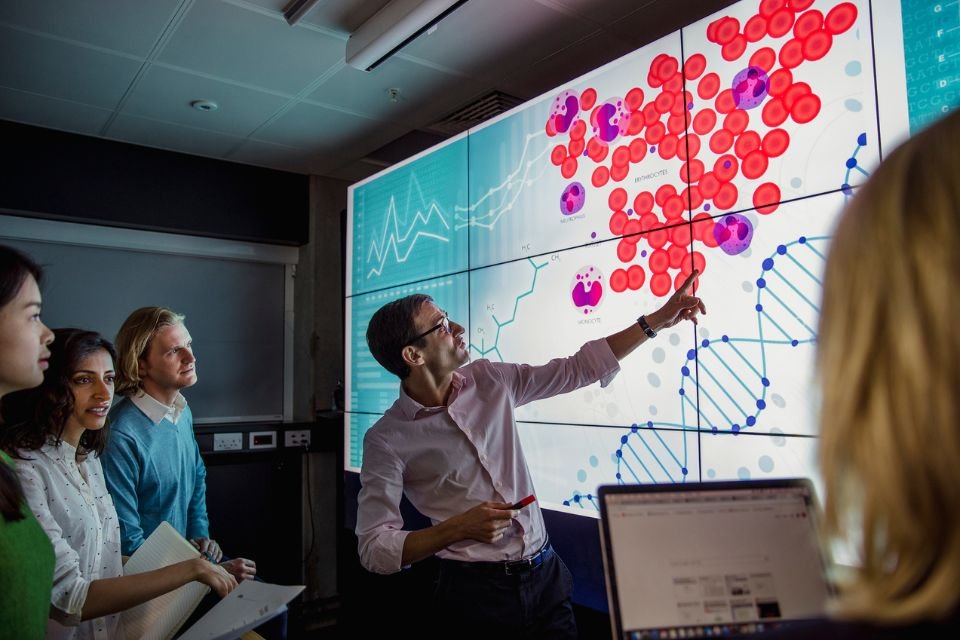The best hospitals in the world are visibly great academic centers. But… They’re better because they post a lot; Or do they post a lot and therefore the best? Is it because they are better than others because they are academics? Or is it an academic environment created by teaching and research in the midst of a healthcare environment that enables the advancement of medicine, the improvement of treatment, and the creation of new talents?
In fact, the most recognized hospitals worldwide are all educational institutions with strong medical and multi-professional residency programs, with their own schools or schools of medicine, nursing, physiotherapy and strong research institutes, among others.
Knowledge generation in this environment strengthens teaching and learning activitiesthat creates, attracts and retains talent. In practice, these institutions are transforming research knowledge into care, quality and safety for patients.
Are there any good hospitals that don’t do training and research? Yes, there are excellent hospitals dedicated solely to charity activities. The main difference between these institutions is that hospitals that invest in research—as in the case of Alzheimer’s—participate and define what the medicine of tomorrow will be like.
Others look forward to this development only then to incorporate new applications, technologies and innovations into their maintenance routine. In this context, it is worth considering the role of research activities, especially in educational institutions with undergraduate programs.
This reflection is not limited to the healthcare field, but also to engineering, computing, economics, startup programs, and scientific methodology that strengthen critical and analytical capacity. Therefore, even if the professional does not pursue a career with an academic bias, he will always be able to evaluate the literature and incorporate new knowledge into his daily practice.
What are the developments in education and research?
The teaching and learning process has made tremendous advances with the incorporation of technologies. putting the student at the center of their own development. In this sense, doing research as well as teaching becomes an important tool in the learning process.
Giving undergraduate students the opportunity to participate in a research project awakens their curiosity for new knowledge, increases their skills and knowledge for a critical assessment of literature, and methods for tackling future challenges.
In order for all of this to happen, institutions need to be in search of a faculty with the necessary training for these activities, in addition to the necessary infrastructure. In addition to undergraduate activities, having doctoral professors and leading research groups in master’s and doctoral programs are necessary conditions for the success of this equipment.
Undergraduate students learn from experience participating in research projects, some of which are scientific start-up grants, with a flourishing faculty from new degrees awarded by graduate, doctoral, and postdoctoral students.
Hence the question: it is possible to have good faculties without doing research? As with hospitals, yes, there are excellent faculties without research programs. But again, They use available knowledge to piece together their pedagogical strategies is about teaching and learning. Likewise, they do not develop their students’ skills and abilities because they are not involved in knowledge production.
Of course, in a class of one hundred students, more than half a dozen will pursue careers in research. Therefore, we may ask ourselves whether such skills will be necessary for professional success.
After all, what determines professional success in healthcare and research?
It is important to define what professional success represents. Then, Define the profile of the institution’s student It is essential to define what faculty we want to build for the market.
If this professional achievement is measured by positions or salaries, schools with or without research activities will certainly be on equal footing. We will find success in both groups.
However, if we understand as professional success the set of skills and competencies we possess while practicing a profession, then yes, we can have relevant differences. It’s like developing a nanoparticle to treat endometriosis.
So the question is: Do you want to lead by discovery through research or do you just want to act by example?
Did you like the content? Keep following Tecmundo to stay up to date with other topics in health, technology, education and entertainment!
Source: Tec Mundo
I am Bret Jackson, a professional journalist and author for Gadget Onus, where I specialize in writing about the gaming industry. With over 6 years of experience in my field, I have built up an extensive portfolio that ranges from reviews to interviews with top figures within the industry. My work has been featured on various news sites, providing readers with insightful analysis regarding the current state of gaming culture.












